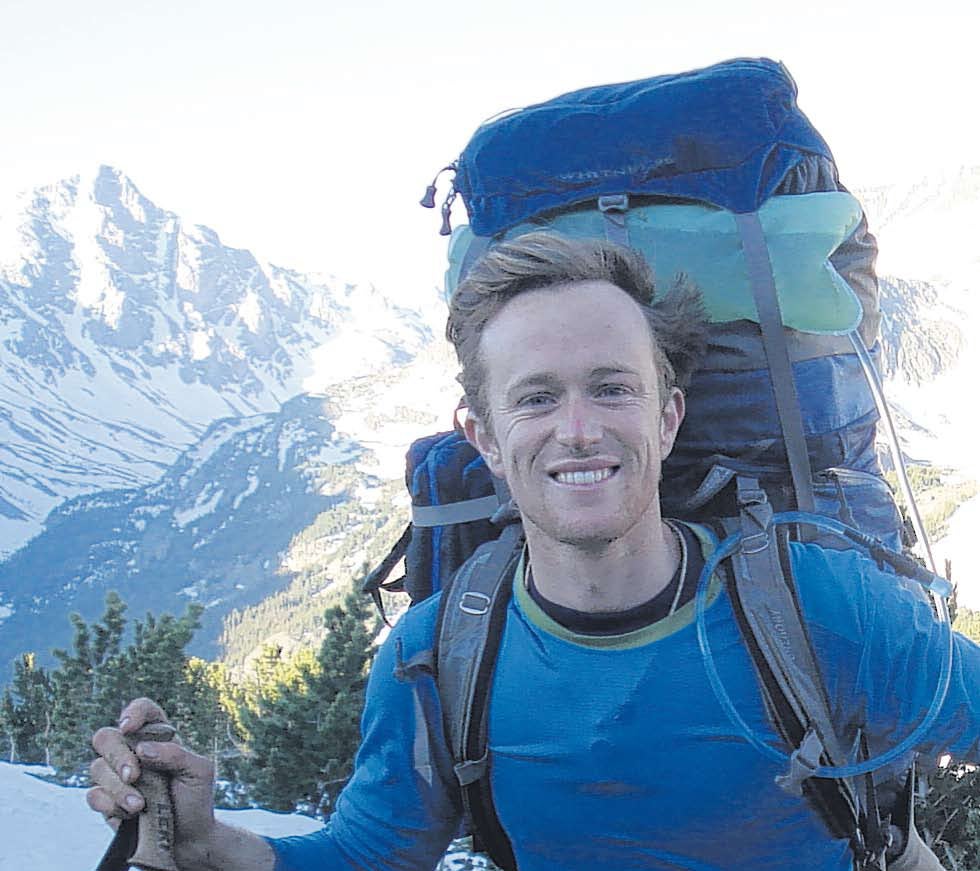Finance careers are a lot like trekking
Distinct experience demonstrates a broad skillset, says Matt Symonds

There all almost as many different motives for taking an MBA as there are MBA students themselves. Some look for the hike in salary that the three letters after your name so often bring; others are attracted by the idea of obtaining an address book that will open doors around the world; and some gain sheer pleasure from learning new knowledge.
For a significant proportion, however, an MBA is seen as a stepping stone, a chance to establish a new career or a new business, even a new life. But how realistic is this, given that most employers still recruit as much on the basis of experience as they do on future potential, and that so many successful start-ups are direct products of their founders' past? Are Transformers still more likely to be found in toy shops and on cinema screens than on a business school campus?
Leading wilderness treks and dog-sledding expeditions is a road less travelled for many aspiring executives, but for Will Arbuckle, it was just another day at the office in his role at global expedition company Outward Bound. "I was responsible for groups of 10 to 15 people. Sometimes we were on rough terrain or out of reach and away from civilisation for days on end."
So after three years as a guide, why give up the view from a mountain top for a view from the office? "It was an amazing lifestyle but I didn't want to be the 35-year-old that lived out of a tent. I knew I wanted some sort of entrepreneurial role that matched the creative setting of Outward Bound – working with small groups in remote areas with limited resources, but still making things happen."
While his entrepreneurial skills would resonate with certain recruiters, Arbuckle felt he still needed the credibility and core business skills of an internationally respected MBA. To maintain the global scope of his career, he secured a place at top European business school, HEC Paris. "For me, the 16-month course length of the programme was ideal, because it gave time to reflect, digest all the learning and figure out my path."
Though some of the core courses in finance and economics proved initially challenging, Arbuckle found himself increasingly comfortable with issues discussed in the financial press. "It was like learning a new language, where one day you realise that you can actually speak Spanish or French quite well. At HEC I suddenly realised I could read finance."
He also acknowledges the many overlapping skills between succeeding in the corporate sector and succeeding in the wilderness. "In both you're taking risks and leading people in volatile environments while adapting your leadership style."
Since completing his MBA, Arbuckle has relocated to San Francisco to work for a tech start-up that was recently acquired by Google, using his business skills every day. "The MBA curriculum had a direct effect on the job I have now. I work in an enterprise sales team, regularly meeting with global clients to get them to invest in our technology. I'm able to speak with fluency and knowledge, and give the MBA from HEC full credit for that."
The ability to analyse data and measure results is another MBA skill that can transform a career, and is encouraging a growing number of MBA graduates towards a career in e-commerce. Although Vivek Agarwal had worked for Citibank on mergers and acquisitions in the oil and gas industry, he used his time during the MBA at IESE Business School in Barcelona to write a business plan for an online start-up to introduce Indian fashion to the UK.
Business school convinced him to focus his company, Strand of Silk, on the high end of the designer market. "My years in banking combined with the MBA gave me the discipline to evaluate companies, identify where cash flow was coming from and write the business plan," he says.
The MBA also gave him credibility when it came to convincing Indian designers to work with him. "It was clear this wasn't just a hobby – I had a serious business background to give the venture a real chance of success."
Agarwal's interaction with classmates from more than 50 countries also gave him an insight into how people make buying decisions based on culture and background. "The multicultural learning environment was invaluable, and brought clarity to our marketing approach. The use of the case-study method at business school means you are constantly sharing perspectives – understanding different behaviours is key."
Subscribe to Independent Premium to bookmark this article
Want to bookmark your favourite articles and stories to read or reference later? Start your Independent Premium subscription today.

Join our commenting forum
Join thought-provoking conversations, follow other Independent readers and see their replies